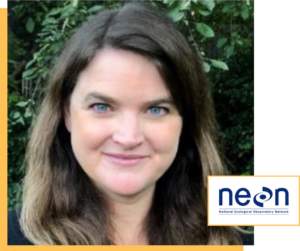Session 21: Showcasing successful global research infrastructure collaborations
Thursday, 5th December 9.15AM AEST | Plenary session
This session will showcase successful large-scale international research infrastructure collaborations that have navigated scientific and policy challenges to build unique facilities and global networks.
Each case study will illustrate the varying levels of technological and institutional alignment required to achieve global integration and impact.
Attendees will gain insights into overcoming common obstacles and leveraging international partnerships to advance scientific goals and infrastructure development.

Moderator
Inmaculada Figueroa is the Deputy Director General for International Consortia, Organizations and Research Infrastructures at the Ministry of Science, Innovation, and Universities of Spain. With a background in electrical engineering and aerospace research, she represents Spain at the European Strategy Forum on Research Infrastructures (ESFRI), and at CERN and ESO Councils among others. She shapes European open science policy as Spain’s delegate on the European Open Science Cloud (EOSC) Governing Board. She also advocates for high-performance computing as a representative in the Governing Board of EuroHPC JU and fosters global research infrastructures. In particular, she has led the EU-Latin America & Caribbean collaboration on Research infrastructures through Horizon2020 and Horizon Europe programmes.

Panellist
Satoshi Matsuoka has been the director of RIKEN Center for Computational Science (R-CCS) since 2018. He is responsible for developing the supercomputer Fugaku which has become the fastest supercomputer in the world in all four major supercomputer rankings in 2020 and 2021 (Top500, HPCG, HPL-AI, Graph500), along with multitudes of ongoing cutting edge HPC research being conducted, including investigating Post-Moore era computing, especially the future Fugaku NEXT supercomputer.

Panellist
Professor Rory Fitzgerald is Director of the European Social Survey, European Research Infrastructure Consortium (ESS ERIC) – an independent international research organisation hosted at City, St George’s, University of London. The ESS is a rigorous comparative biennial survey of changing attitudes and values in European countries.

Panellist
Sylvain Charbonneau became the sixth President and CEO of the Canada Foundation for Innovation in October 2024. He is a former researcher, entrepreneur and leader in research administration. Before joining the CFI, he held the role of Vice-President, Research and Innovation at the University of Ottawa and prior to this, he held the role of Executive Director at the National Research Council of Canada.

Panellist
Dr Kate Thibault is the Science Lead for the National Ecological Observatory Network (NEON) Program, managing its science components. This includes oversight of data product design and quality and user support, as well as providing budget oversight for and technical guidance to the Science team, the NEON Program Management Office, and the National Science Foundation. Kate joined NEON in 2011 as its vertebrate ecologist, responsible for the small mammal and breeding bird sampling. She later served as co-lead for the NEON Terrestrial Observation System which includes >20 standardized protocols to sample diverse organisms and biogeochemical measurements across the U.S. and has been the Science Lead since 2017. Kate holds a B.S. in Biology from Boston College and a Ph.D. in Biology from the University of New Mexico, as well as a PMP from the Project Management Institute.
We acknowledge the Traditional Owners of the lands and waters throughout Australia, and pay respect to the Elders past, present and emerging. We recognise the importance of connection to culture, land, kinship and community to the health and wellbeing of Aboriginal & Torres Strait Islander families. We acknowledge the cultural practices and traditions still carried out today and being passed down to future generations.


